Step back from expansion or send in NATO troops

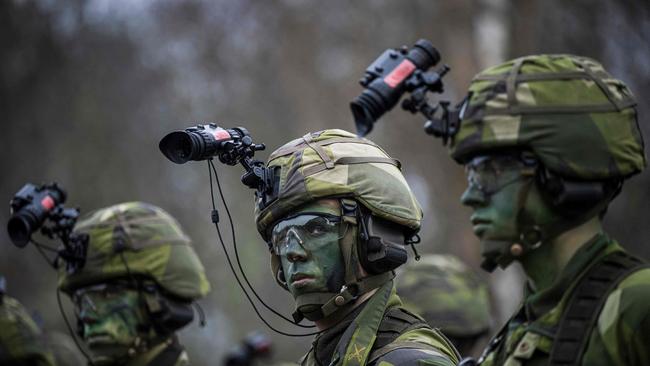
The Biden administration and key European allies such as Germany and Britain have dismissed the idea, but NATO’s growing desperation underscores what’s becoming the biggest foreign policy disaster since Vietnam, one that could become far worse. By providing Ukraine with enough weapons to fight back but not enough to try to win, the US and its allies have drawn out the suffering of Ukrainians.
Hundreds of thousands are dead or wounded, cities have been turned to rubble, millions have fled and Ukraine’s government is on life support from the US. Even if the US congress sends another $US60bn ($91.7bn) in aid and weapons to Ukraine in coming weeks, it has never explained how it will do what the previous $US113bn could not.
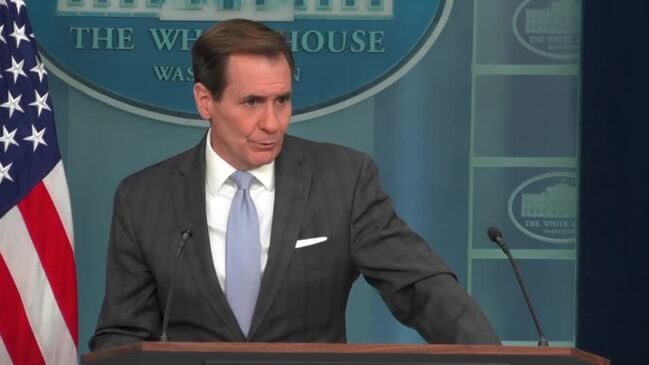
Russia is producing arms at a rate seven times that of the West, according to The New York Times, and has barely mobilised. Won’t Moscow fire back at Ukraine even harder, killing thousands more without changing the final outcome? Unless the US or France can form a coalition to send troops to fight Russia in Crimea and the Donbas, the duration of suffering and the number of dead appear to be all that remains in question.
The greatest tragedy of the biggest land war since World War II is that it probably could have been avoided or at least delayed until Vladimir Putin’s death. Ten days before the Russian President invaded Ukraine on February 24, 2022, Jack Matlock, US ambassador to the Soviet Union under Ronald Reagan and George HW Bush, wrote that the looming crisis was predictable and wilfully precipitated: since Putin’s demand was halting NATO expansion, “obviously there would have been no basis for the present crisis if there had been no expansion of the alliance”.
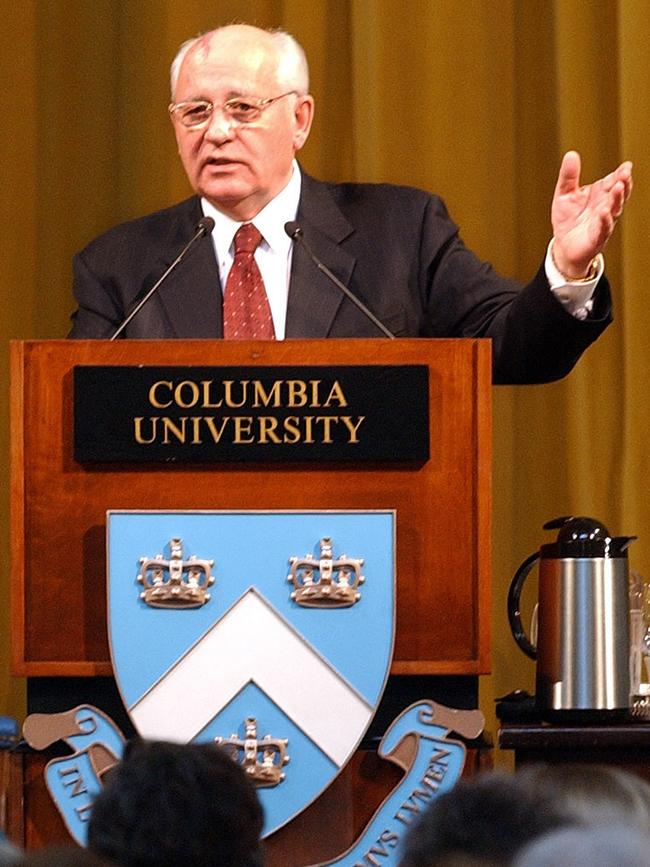
Last September NATO secretary-general Jens Stoltenberg reminded a European parliament security committee meeting that Putin had previously presented a draft treaty demanding the alliance rescind its promise to incorporate Ukraine into NATO. “That was what he sent us. And (that) was a precondition for not (invading) Ukraine. Of course we didn’t sign that,” Stoltenberg said. Was such pride really worth the subsequent death and destruction?
Promising to keep Ukraine neutral would have removed Russia’s argument about NATO-encroachment, depriving him of any casus belli. In a cable to US secretary of state Condoleezza Rice in 2008, US ambassador to Moscow William Burns, now CIA director, said having Ukraine in NATO was “the brightest of all red lines for the Russian elite (not just Putin)”.
“I have yet to find anyone who views Ukraine in NATO as anything other than a direct challenge to Russian interests,” he wrote.
Every Russian leader since Mikhail Gorbachev had counselled strongly against the spread of NATO to Russia’s borders. In 1997, respected US diplomat George Kennan wrote “expanding NATO would be the most fateful error of American policy in the entire post-cold-war era”.
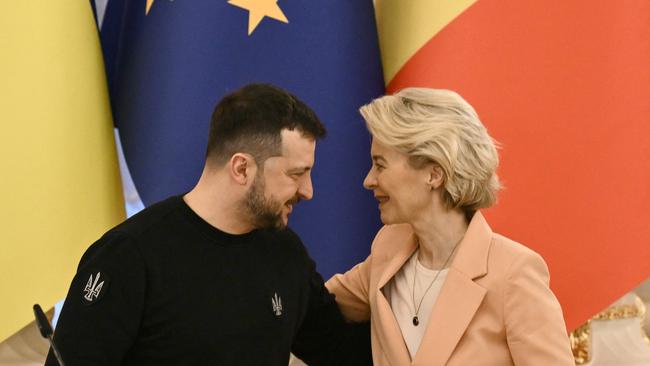
It would, he said, “inflame the nationalistic, anti-Western and militaristic tendencies in Russian opinion … restore the atmosphere of the cold war and … impel Russian foreign policy in directions decidedly not to our liking”. Indeed, driving Moscow into Beijing’s arms has been a disaster.
Australia’s own Cold War warrior Malcolm Fraser agreed, writing in 2014 that “if Putin thought that the West was angling to get Ukraine into NATO, he certainly would have taken steps as he has to guarantee access to the Black Sea ports in Crimea”.
Why the Biden administration and European leaders have ignored the wisdom of a generation of scholars and leaders is a mystery. The central role of NATO expansion is undeniable even according to top Ukrainians. In a 2019 interview, former Volodymyr Zelensky adviser Oleksiy Arestovich said “with a 99.9 per cent probability, our price for joining NATO is a big war with Russia”.
The two sides were close to a deal in Istanbul a few months after the war started until Boris Johnson scuttled it, a fact he all but conceded since. “Russia’s goal was to push us to take neutrality,” Ukrainian delegation leader David Arakhamia said in an interview last year. “That was essentially the main point. Everything else was cosmetic and political embellishments about ‘denazification’, the Russian-speaking population, blah blah blah.”
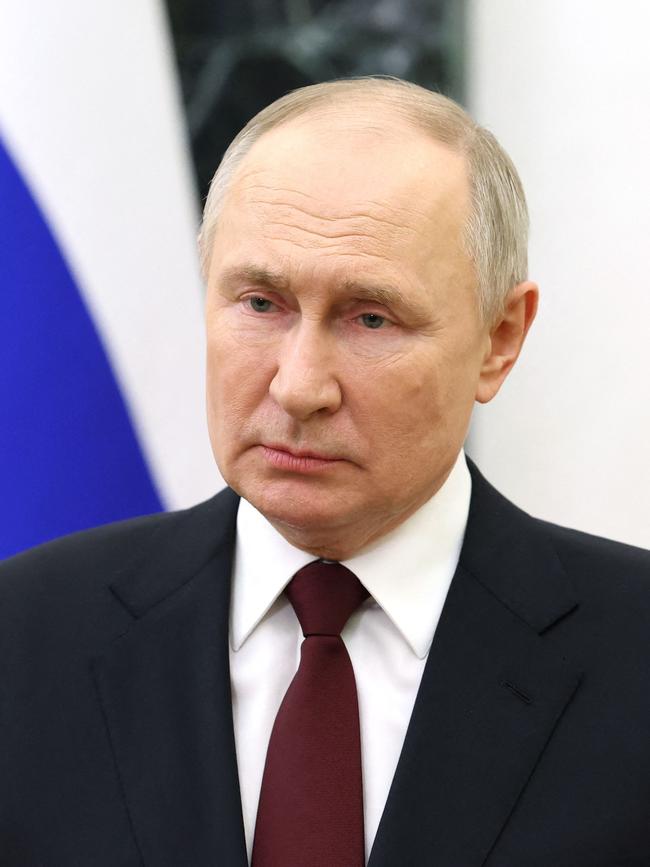
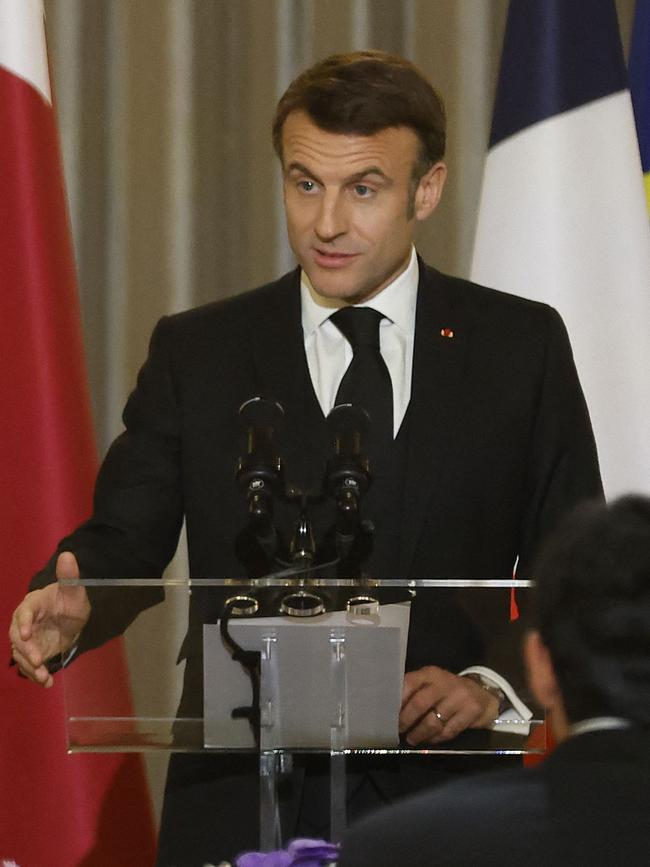
It’s important to provide original quotes because characterisations of Russia and its aims have become dangerously unhinged. First Russia was about to collapse and run out of everything; now it’s putting nuclear weapons in space and planning to take over Europe.
“If Russia is successful in Ukraine, Putin’s not going to stop there. He’s going to go to the next country, potentially Poland and surrounding countries, and America potentially could be next,” CNN analyst Alice Stewart said last week without evidence.
In a 2016 interview with The Atlantic, Barack Obama said Ukraine wasn’t a core American interest and “Russia will always be able to maintain escalatory dominance there”. “The fact is that Ukraine, which is a non-NATO country, is going to be vulnerable to military domination by Russia no matter what we do,” he said.
Zelensky reportedly is mulling conscription of another 450,000 Ukrainians to keep the fight going, after 650,000 men have fled the country, according to the BBC. Further carnage could possibly be avoided if the US were willing to jettison Ukraine’s NATO hopes and pare back the 12 potentially provocative CIA bases constructed in Ukraine since 2014, according to The New York Times.
If not then they should send their own troops into battle, not force poor Ukrainians (for certain, most of the richer ones would have left) to lose their limbs and die in the tens of thousands for grand NATO strategy.

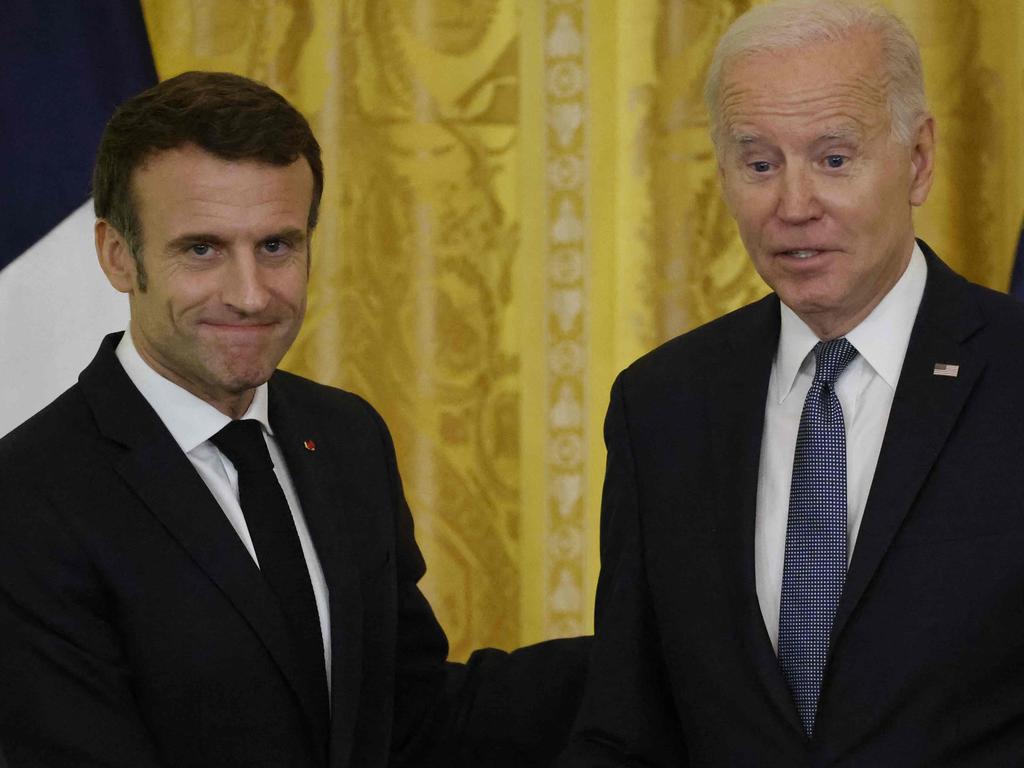
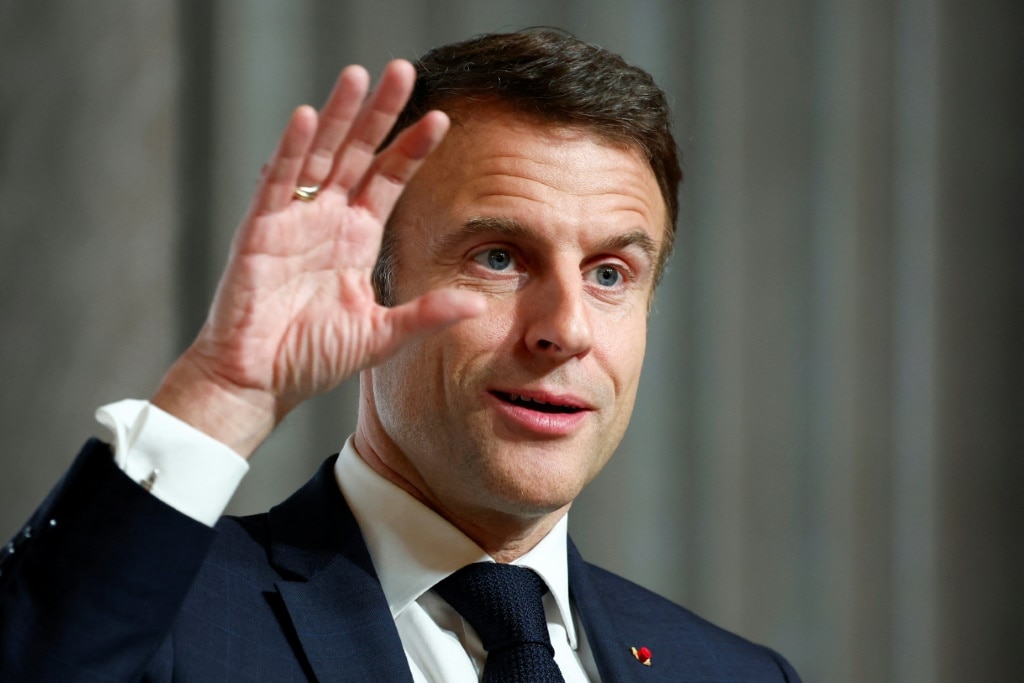

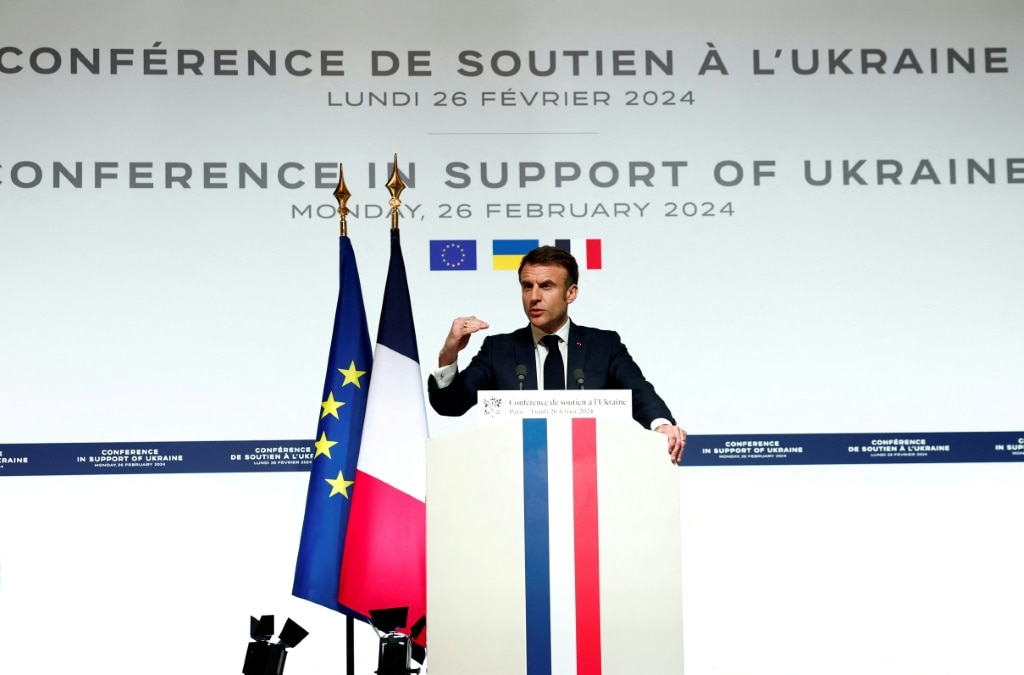


Two years on from Russia’s brutal invasion of Ukraine, French President Emmanuel Macron has suggested Western troops might need to join the fight against Russia, something considered anathema even six months ago.